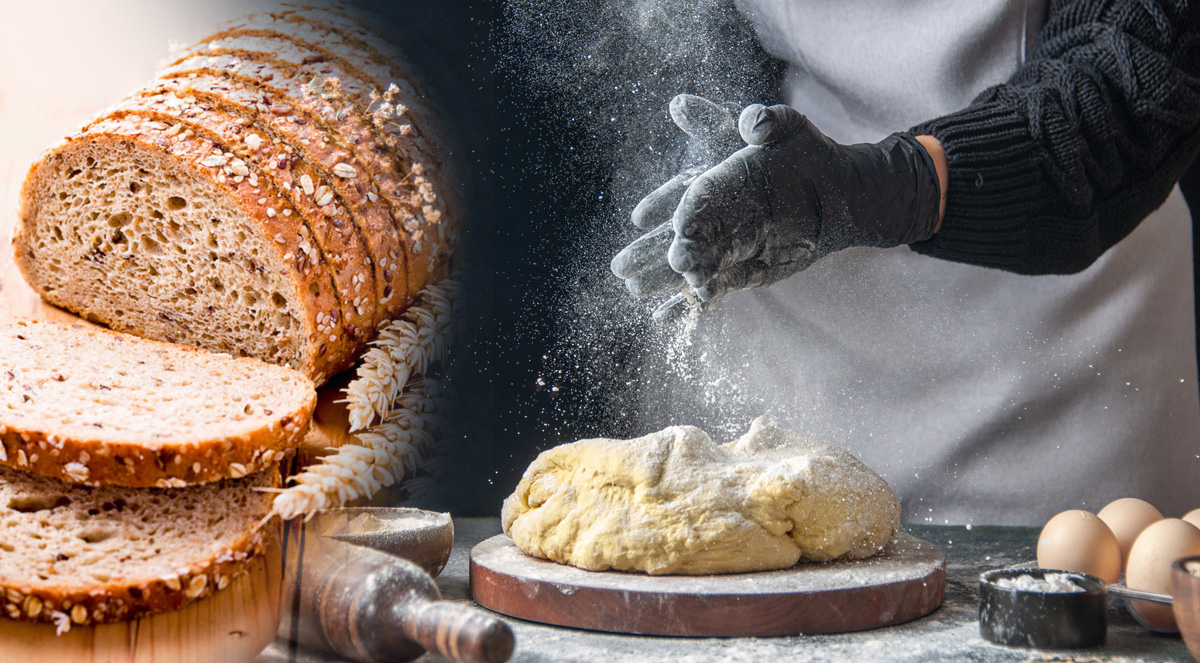Traditional bread is the number one health risk in your diet, including a hidden compound that makes burning fat and losing weight impossible!
Bread is one of the most soothing and delicious dishes…
It could be a warm slice of focaccia drizzled in olive oil… a sandwich on a crusty baguette… a buttery croissant… or even a simple piece of toast with butter…
The very mention of these foods makes your mouth swim!
And the joyful “intoxication” you get after eating bread is true.
In fact, you could argue that bread was the first food addiction.
Gluteomorphins are chemicals produced by traditional bread. And, as the name implies, these substances activate opioid receptors in your brain, which are also activated by narcotics like morphine and heroin.
Cheese contains very similar chemicals known as casomorphins.
That would explain the euphoric rush of pleasure you get when you bite into a crusty slice of pizza with bubbling, melting cheese!

To keep you going back for more, the blood-sugar increase from high-carb bread raises dopamine, the “craving neurochemical” from which the word “dope” derives.
So it is not a leap of the imagination to say…
Bread is a drug that induces a cycle of cravings for more bread!

Our obsession with comfortable (and addicting) bread predates recorded history…
The Bible essentially begs believers to consume it: “Give us this day our daily bread…”
The rest of the meal was called ópson in ancient Greece, which means “condiment” or bread’s accompaniment.
The fuzzy sensation you get when you bite into a slice of warm bread, on the other hand, is fleeting.
And, unfortunately…
Those few moments of toasty-buttered bliss come at a high cost.
Dr. William Davis, a well-known cardiologist, refers to wheat as “the ultimate chronic toxin.”
And we sure eat a lot of poison. Every year, the average American consumes 55 pounds of wheat flour, making refined flour the leading source of calories in the American diet!
Chris Kresser, a functional nutrition expert, calls this a “public health disaster.”

And it’s one you’ve most likely witnessed firsthand…
Eating traditional bread can have a variety of side effects. It may cause sluggishness and fuzzy thinking. Or make you accumulate ugly fat on your stomach, buttocks, and thighs… while encasing your vital organs in lethal visceral fat
And the possible explanation is due to…
Wheat’s Glycemic Index is among the highest of ALL Foods due to a little-known compound.
You understand how critical it is to maintain your blood sugar constant…
Rapid blood sugar and insulin surges cause an inflammatory and oxidative cascade.
Repetition of these pressures increases your risk of cancer, Alzheimer’s, heart disease, fatty liver, diabetes, retinal degeneration, physical aging (wrinkles), and other diseases.
And did you know that wheat, even so-called “healthy” whole wheat, raise blood sugar levels more than practically any other food? even when the same amount of carbohydrates are consumed?

This is because amylopectin A accounts for 75% of the carbs in wheat.
Because of how quickly it is converted into glucose, this molecule is remarkable.
According to a study published in the American Journal of Clinical Nutrition, eating two pieces of whole wheat bread raises blood sugar levels more than drinking a can of soda, eating a candy bar, or consuming six teaspoons of table sugar!

And if diabetes, heart disease, and metabolic syndrome aren’t enough to worry about… The harm that conventional bread can do to your gut should make you think twice before buttering your next biscuit!
However, there is a major myth concerning bread and your gut.
And it has cost millions of people their health and happiness…
Don’t Be Misled by This Common (and Deadly) Bread Myth…
What you don’t see CAN harm you!
You’ve probably heard about Celiac Disease. It is the most severe intolerance to gluten-containing grains, often resulting in death.
Many people with this ailment can’t eat even a crumb of wheat without experiencing extreme intestinal pain… and other humiliating symptoms.
When wheat is consumed, other disorders, such as Crohn’s and inflammatory bowel disease, cause excruciating cramps, bloating, and other digestive distress.
This causes many people to believe that as long as you can eat bread without getting sick, you’re safe… no harm is done!
Don’t be taken in by this terrible myth!
In reality, approximately half of newly diagnosed celiac patients experience no digestive symptoms! [2]
In other words, half of those who are EXTREMELY sensitive to wheat can still eat it without experiencing the traditional “stomach troubles.”
Keep Reading the Full Article Here >>>








Thank you for sharing your recipes, makes this Keto lifestyle a lot yummier!